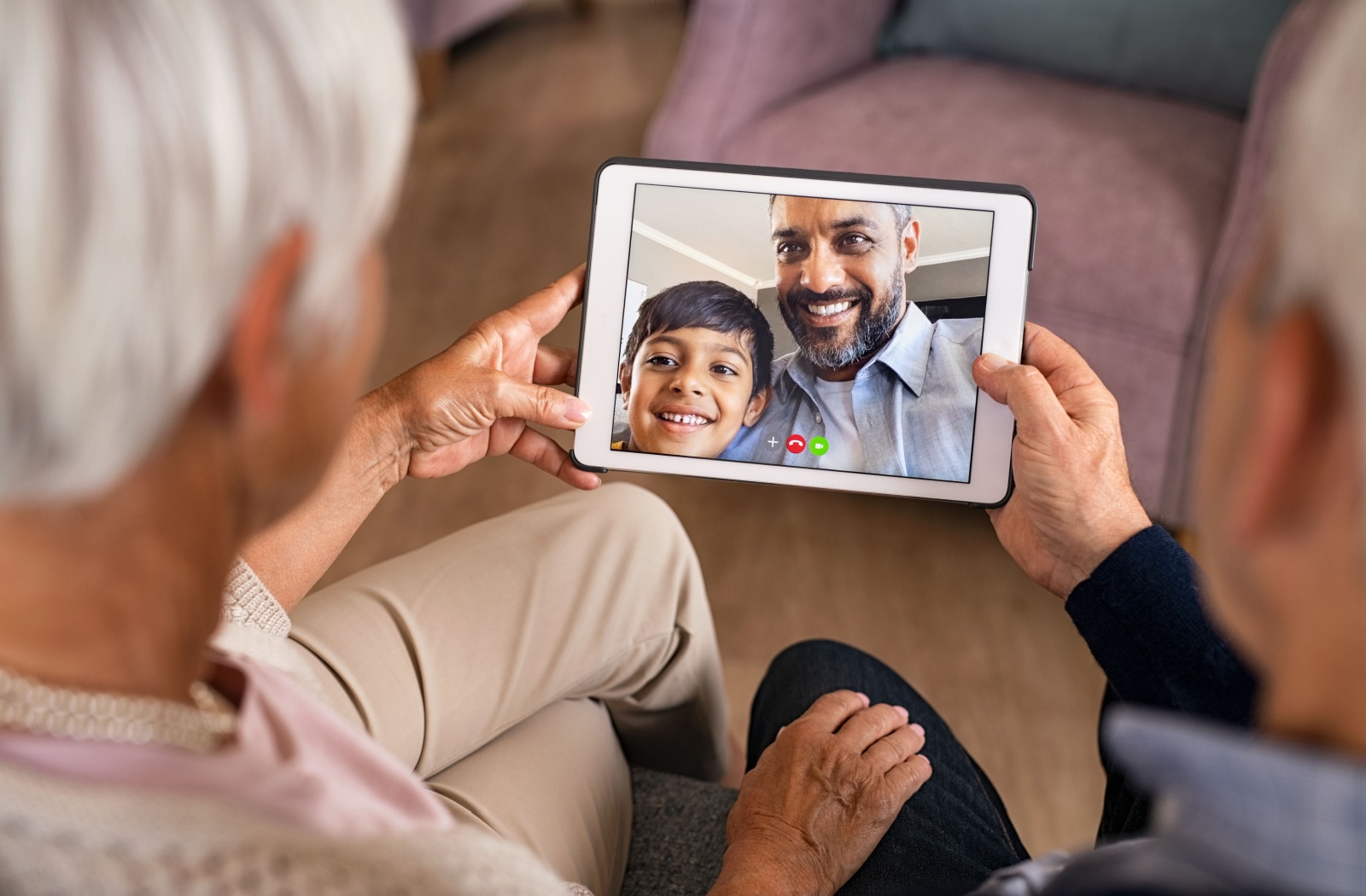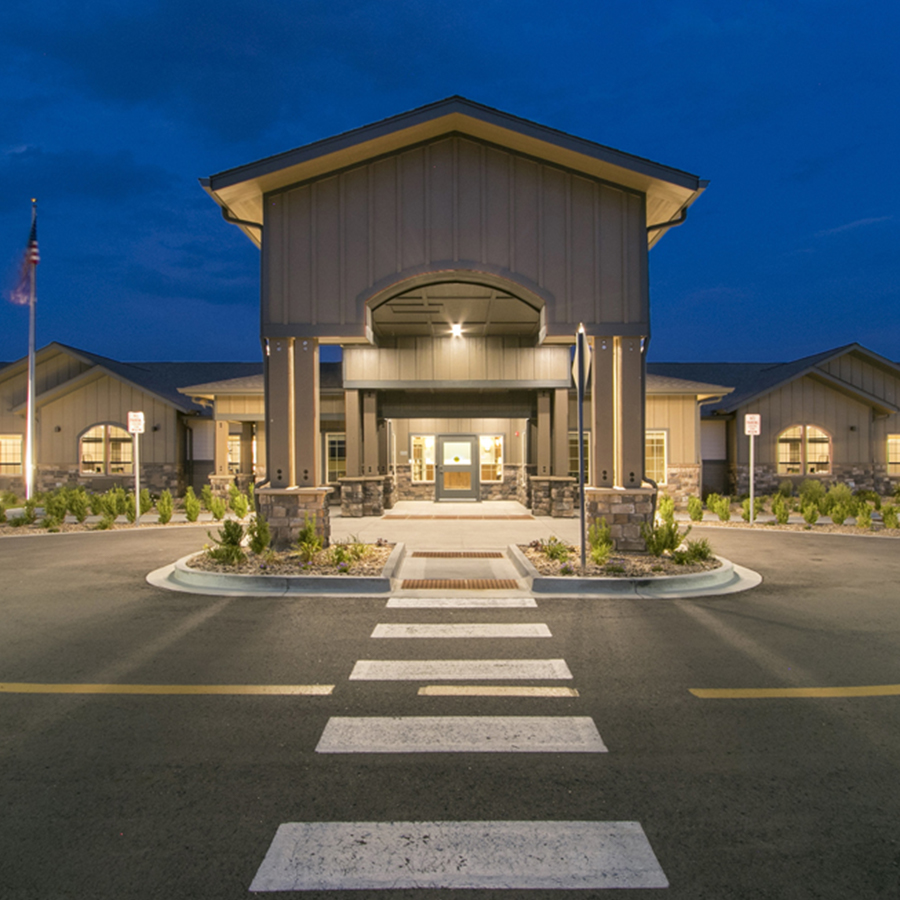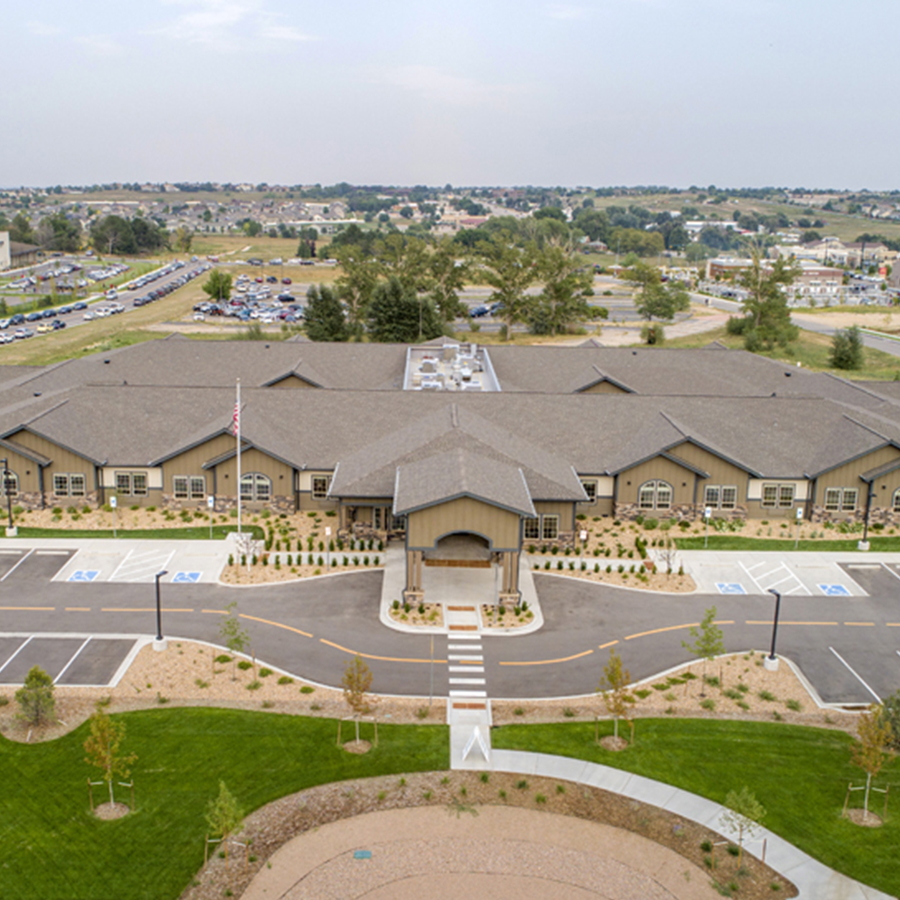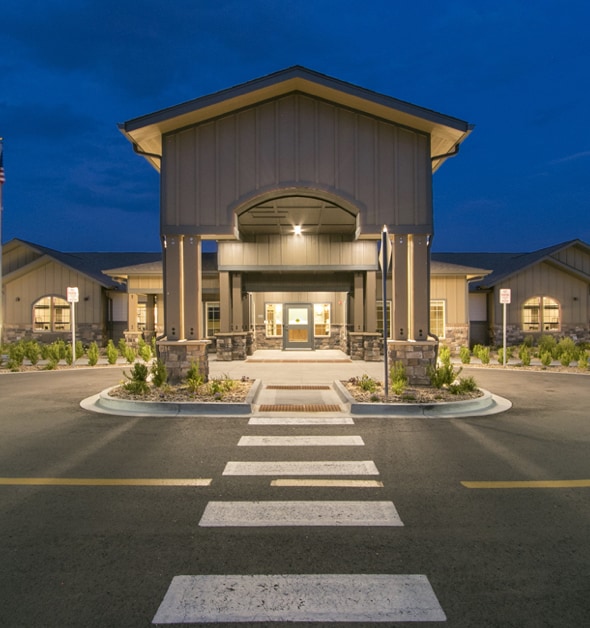Distance doesn’t have to mean disconnection. When your parent has dementia and you can’t be there in person, maintaining a meaningful relationship might feel challenging. However, with the right approach, you can continue to nurture your bond and offer support from a distance.
Stay connected by scheduling regular video calls, sending thoughtful letters or care packages, and working closely with their caregivers to stay updated on their needs. Professional memory care can also provide consistent support when you are unable to be there yourself.
What is Long-Distance Caregiving?
Long-distance caregiving involves providing support and care coordination for a loved one from a significant distance, typically more than an hour’s drive away. For families dealing with individuals living with dementia, this arrangement presents unique challenges and opportunities.
Unlike traditional hands-on caregiving, long-distance care must focus on coordination, communication, and emotional support. You become the orchestrator of your parents’ care team, working with healthcare providers, family members, and professional caregivers to ensure your loved one receives comprehensive support.
Many adult children find themselves in this situation due to career obligations, family responsibilities, or geographic circumstances. The good news? You can still play a vital role in your parent’s wellbeing and maintain a strong connection despite the miles between you.
Reducing Guilt About Not Visiting Often
It’s natural to feel guilty about not visiting a parent living with dementia as often as you’d like. However, remember that your love and care can be expressed in many ways beyond simply being there in person. Give yourself grace and acknowledge you’re doing your best. Quality matters more than quantity—brief connections, such as those made through a call, video chat, or message, can bring comfort.
Focus on creating a reliable care plan to ensure your parent is supported in your absence. Lean on your support network and know that even small efforts make a meaningful difference.
How Can I Stay Connected with My Parent from a Distance?
Staying connected with your parent from afar can feel challenging, but it’s entirely possible with a bit of creativity and effort. Utilizing technology and thoughtful gestures, you can maintain a meaningful bond, regardless of the distance.
Regular Communication
Consistency matters more than duration when connecting with someone who has dementia. Establish a routine that works for both of you and stick to it as much as possible.
- Phone calls: Keep calls short and sweet, especially as dementia progresses. Call at the same time each day when your parent is typically most alert. Morning hours often work best.
- Video chats: Seeing your face can help your parent feel more connected. Use simple video calling platforms and keep the technology straightforward. Consider asking a caregiver to assist with setting up the call if needed.
- Voice messages: Record brief, cheerful messages your parent can listen to multiple times. Share updates about your life, remind them of your love, or simply say good morning.
- Letters and cards: Physical mail creates tangible reminders of your love. Send simple notes with photos, or create a photo album they can look through regularly.
Coordinating Care & Involving Others
Managing your parents’ care from a distance requires building a reliable network of local support.
- Healthcare coordination: Establish relationships with your parents’ doctors and care team. Many healthcare providers offer telehealth consultations, allowing you to participate in appointments remotely.
- Local family and friends: Connect with relatives, neighbors, or family friends who live nearby. They can provide eyes-on-the-ground updates and occasional in-person visits.
- Professional care managers: Consider hiring an aging life care expert who can assess your parent’s needs, coordinate services, and provide regular updates on their well-being.
Building a Support System
Creating a comprehensive support network ensures that your parent receives consistent care and attention when you are unable to be there.
- Community resources: Research local senior centers, adult day programs, and volunteer organizations that offer services for people with a dementia diagnosis.
- Support groups: Many organizations offer support groups specifically for long-distance caregivers. Connecting with others in similar situations provides valuable advice and emotional support.
- Technology solutions: Explore apps and devices designed for seniors living with dementia. GPS trackers, medication reminders, and simplified communication devices can enhance safety and connection.
Making the Most of Visits (When Possible)
When you can visit, focus on quality over quantity.
- Plan meaningful activities: Choose activities your parent can still enjoy, whether that’s looking through old photos, listening to music from their youth, or simply sitting together.
- Document the visit: Take photos and videos you can share later. These become precious reminders of your time together.
- Coordinate with caregivers: Use visit time to meet with your parent’s care team, assess their living situation, and address any concerns.
How Memory Care Supports Long-Distance Families

Professional memory care communities understand the unique challenges faced by long-distance families and offer specialized support to bridge the gap.
Regular Communication & Updates
Quality memory care communities provide detailed updates about your parents’ daily activities, health changes, and social interactions. Many communities offer:
- Daily or weekly phone updates from care staff
- Photo sharing through secure apps or email
- Monthly care plan meetings via video conference
- 24/7 communication for urgent concerns
Specialized Dementia Care
Memory care communities employ staff who are specifically trained in dementia care techniques. This specialized knowledge ensures that your parent receives appropriate care, which you might not be able to coordinate from a distance.
Professional caregivers understand how to communicate effectively with people who have dementia, manage behavioral changes, and create meaningful activities that stimulate cognitive function.
Family Involvement Opportunities
Many memory care communities actively involve long-distance family members through:
- Virtual participation in activities and events
- Online family portals with photos and updates
- Recorded messages and video calls facilitated by the staff
- Special events designed for remote family participation
Peace of Mind for Families
Most importantly, professional memory care provides the peace of mind that comes from knowing your parent is safe, engaged, and receiving expert care around the clock.
This assurance allows you to focus on maintaining your emotional connection rather than worrying about daily care logistics.
Your Connection Matters More Than Your Proximity
Being far away doesn’t make you any less important in your parents’ lives. Your voice, your love, and your consistent presence—even from a distance—provide comfort and connection that professional caregivers, no matter how skilled, cannot replace.
High Plains Crossing regularly works with families to coordinate care for loved ones living with dementia, providing support with regular calls and virtual participation in activities. We are your partner in caring for your parent, ensuring they receive expert care while helping you maintain the precious bond you share. Contact us today to learn more about how we can support your family.
















